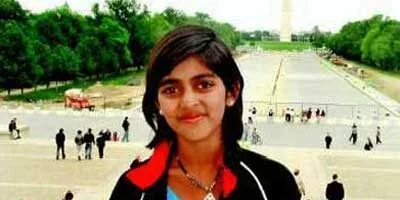prasad1
Active member
by Jyotsna Kamat
A glaring gender discrimination among Hindus exists in India over the centuries. Whereas a widower can remarry as many times as he likes, a widow cannot remarry irrespective of her age. Since child-marriages were common, position of child-widows was pitiable, since their very existence or seeing their face early in the morning was considered a bad omen.
The unfortunate women who could not commit or were prevented from Sati were doomed to lead the most austere life. Among the brahmins and some higher castes, their heads were shaven, they were made to wear red or white sari without ornaments and eat single meal. Their presence at family public functions were totally forbidden. The widows slogged in joint families, died unwept and unsung.
Many social reformers in different parts of India tried to better the lot of such women by educating them and making self-reliant. Child marriage was forbidden by law in early 20th century and this act alone reduced the suffering of women substantially.
The Hindu codes of conduct tried to bring in parity with men regarding ownership and property. With the spread of education and especially the awareness during India's freedom struggle, there was a national awareness regarding the condition of women. Many widows took active part in constructive programs laid down by Gandhi and were forefront leaders.
After independence of India (in 1947) and the subsequent reforms that followed, the dress-code for widows became less rigorous and has disappeared. In cities, at least among middle class, no child-widows are seen. However, widow remarriages are not common. Widowhood is considered still considered a curse and family support is missing at times. But the humiliation of facing a barber for tonsuring the head belongs to history. It goes to the credit of widowed women that they face life bravely and try to be cheerful believing in fate or the karma theory. They tried to lead a pious and austere life presently to earn auspicious existence in next birth.
Plight of Widows
There is a lot to be done. Come on let us start on the path.
A glaring gender discrimination among Hindus exists in India over the centuries. Whereas a widower can remarry as many times as he likes, a widow cannot remarry irrespective of her age. Since child-marriages were common, position of child-widows was pitiable, since their very existence or seeing their face early in the morning was considered a bad omen.
The unfortunate women who could not commit or were prevented from Sati were doomed to lead the most austere life. Among the brahmins and some higher castes, their heads were shaven, they were made to wear red or white sari without ornaments and eat single meal. Their presence at family public functions were totally forbidden. The widows slogged in joint families, died unwept and unsung.
Many social reformers in different parts of India tried to better the lot of such women by educating them and making self-reliant. Child marriage was forbidden by law in early 20th century and this act alone reduced the suffering of women substantially.
The Hindu codes of conduct tried to bring in parity with men regarding ownership and property. With the spread of education and especially the awareness during India's freedom struggle, there was a national awareness regarding the condition of women. Many widows took active part in constructive programs laid down by Gandhi and were forefront leaders.
After independence of India (in 1947) and the subsequent reforms that followed, the dress-code for widows became less rigorous and has disappeared. In cities, at least among middle class, no child-widows are seen. However, widow remarriages are not common. Widowhood is considered still considered a curse and family support is missing at times. But the humiliation of facing a barber for tonsuring the head belongs to history. It goes to the credit of widowed women that they face life bravely and try to be cheerful believing in fate or the karma theory. They tried to lead a pious and austere life presently to earn auspicious existence in next birth.
Plight of Widows
There is a lot to be done. Come on let us start on the path.

